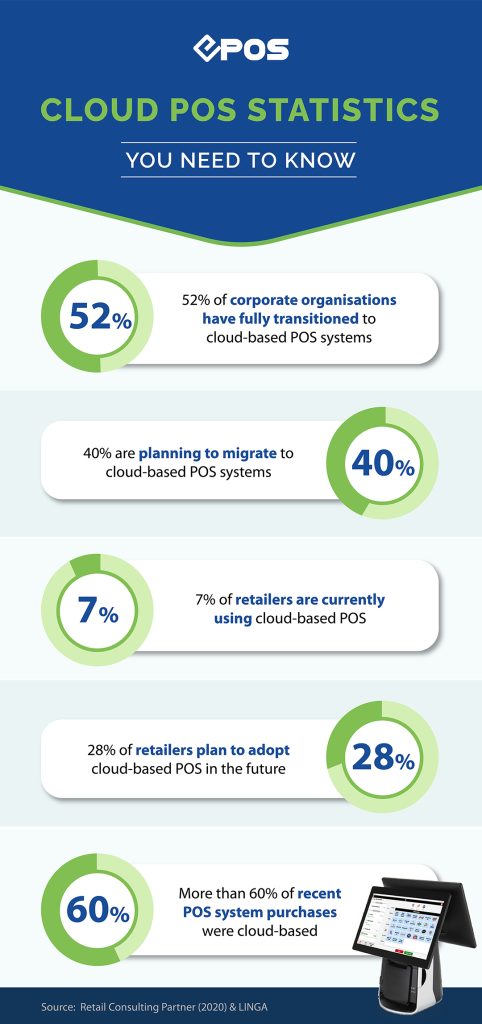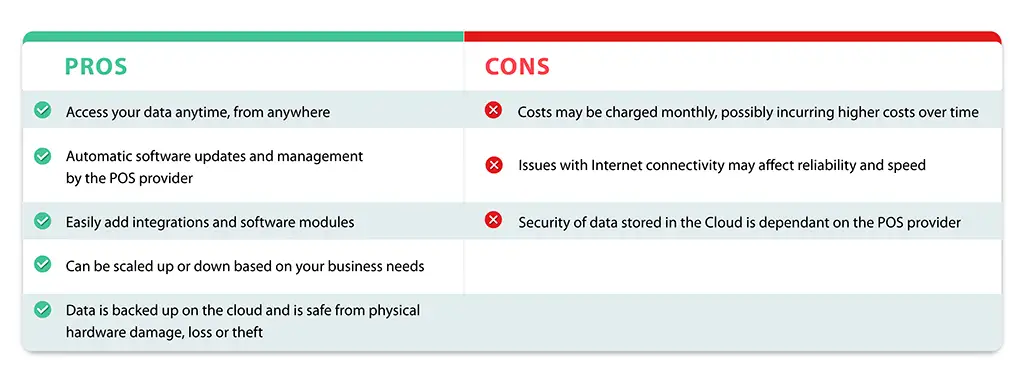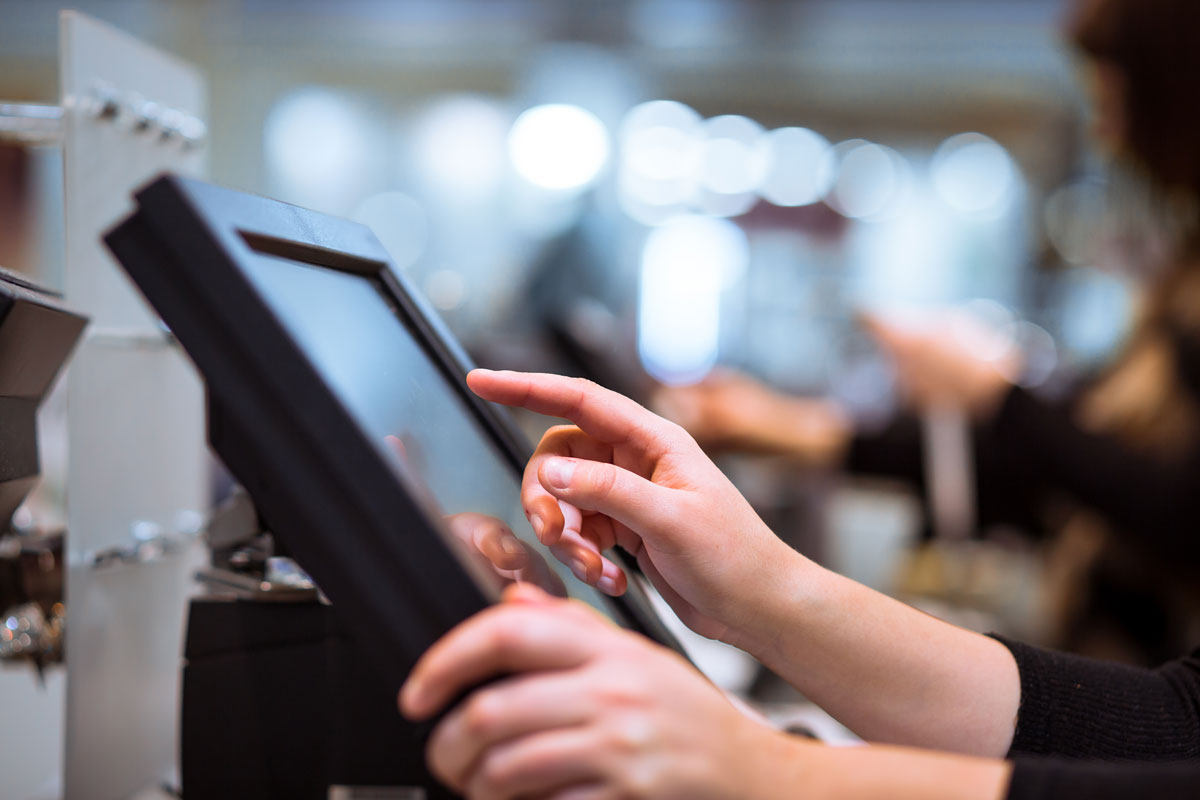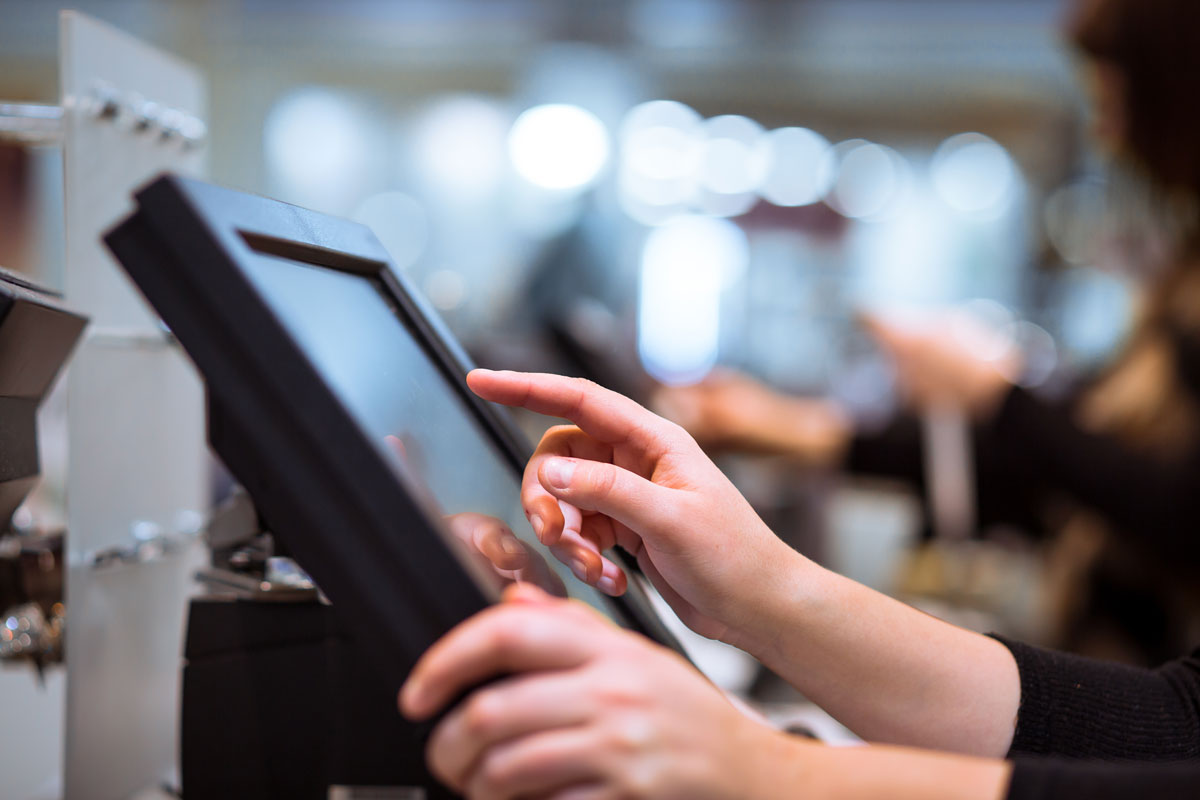
What is a Cloud POS System?
1. What is a Cloud POS system?
“The Cloud” refers to a network of servers accessed over the internet, along with the connected software and database that run on the servers (Cloudflare). It allows users to store, access and manage data over the Internet from almost any device.
Technology has developed such that even POS systems have become cloud-based, leading to more efficient and seamless processes. This guide will explain the definition of a Cloud POS system, its main components and its benefits.

2. What are the components of a Cloud POS system?
Hardware
The biggest piece of hardware a cloud POS has is a POS device or monitor. This is typically a touchscreen monitor that helps you view and use the Point of Sale. “Biggest” doesn’t necessarily mean in size; there are several types of POS devices you can use. From tablet or mobile POS devices to apps on smartphones to stationary POS terminals, businesses are able to choose the POS monitor their business needs.
There are also peripheral hardware that a cloud POS may include, such as payment terminals, barcode scanners, cash drawers, customer displays, receipt printers and more.
With Cloud POS systems, businesses are able to use a variety of different POS devices to streamline their operations since all of the data is automatically synced. A stationary POS terminal can be placed at the main cashier, while tablets or mobile POS devices can be placed around the shop’s floor for easier payment processing.
Software
Software is necessary for the cloud POS system to work. POS systems can have a multitude of different features which allow you to manage your business seamlessly while increasing efficiency and improving customer service. Some of these POS features include payment processing, inventory management, employee and customer management, reporting, data analytics, and integrations with third-party applications, along with others.
Wi-Fi
Cloud-based POS systems require an internet connection to function, so installing a connection in the business is key. As long as the POS system is online, sales, inventory, and customer data will be up-to-date. Even without an internet connection, most cloud POS systems, including EPOS, have both offline and online functionalities, so data is still able to be recorded locally. Once the Internet connection is up again, that data will be uploaded into the cloud.
3. What are the benefits of a Cloud POS system?
Cloud POS systems have their pros and cons, their benefits and disadvantages.
A summary can be found below:

How can a Cloud POS system benefit you and your business? Along with improving your efficiency and cost-effectiveness, this type of POS system also has advantages like:
-
- Accessibility. A Cloud POS system is accessible from any device that is connected to the Internet, from anywhere at any time.
- Automatic updates. Keep your POS system up-to-date with the latest software automatically for smoother management.
- Easy integrations. Integrate with third-party apps with no hassle and seamless data consolidation.
- Scalability. A Cloud POS can easily scale up or down based on your business needs and growth with no loss in quality.
- Data security. Keep your data secure on the cloud from any physical hardware damage, loss or theft.
- Easy to get started. There’s no lengthy process to getting started with a Cloud POS, and no steep learning curve to get over.
Conclusion
Looking for a new Point of Sale system in Singapore? For businesses seeking an ultra-seamless POS system that provides precise control and robust data analytics, nothing feels like an EPOS system. As one of Singapore’s leading POS system vendors, EPOS provides powerful features designed to help your business thrive by improving efficiency, reducing costs and increasing profitability. Elevate your business today with EPOS! Get to know our system by signing up for a free, non-obligatory demo.
• Written by Adrija Chakravarti




